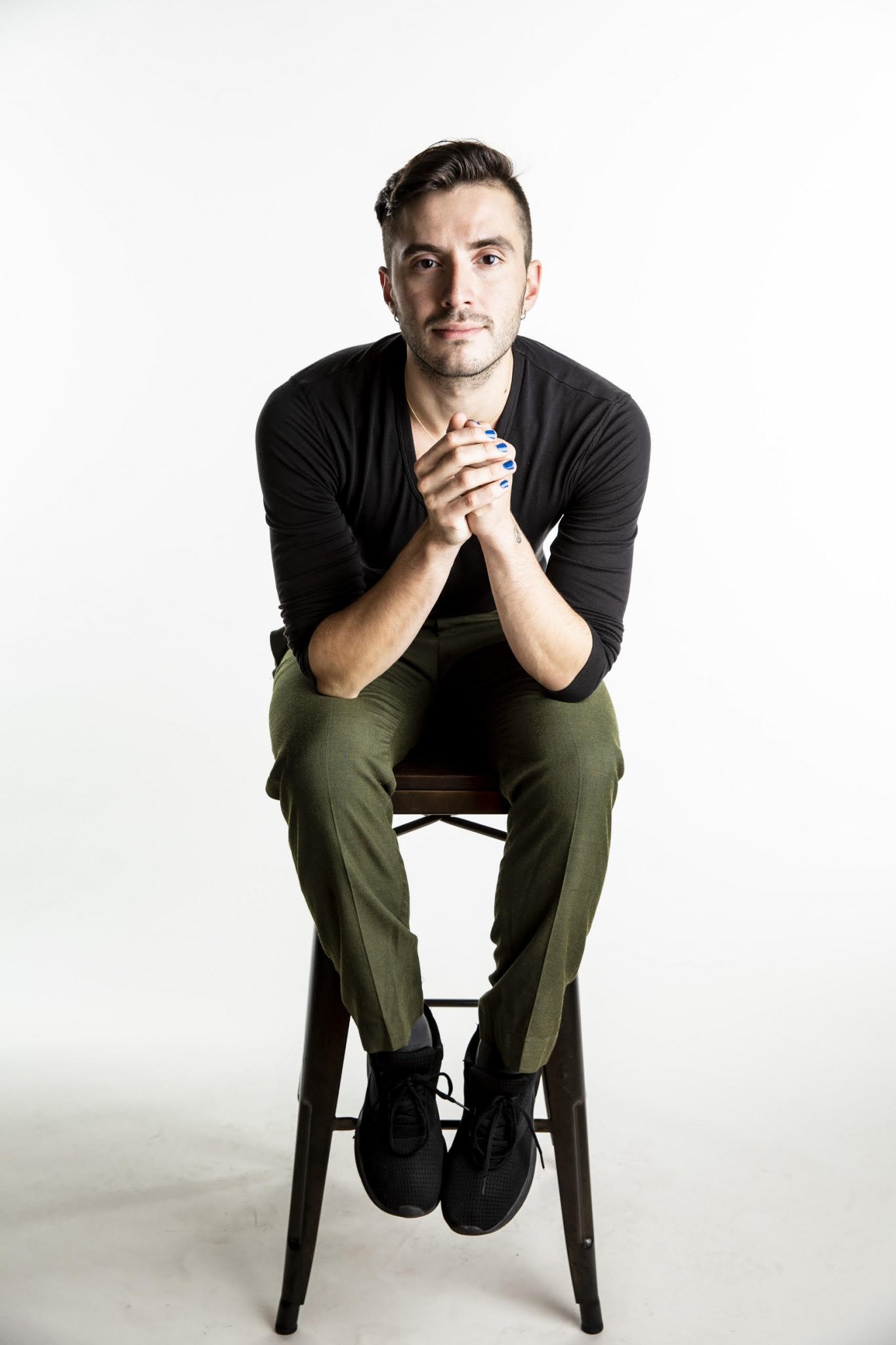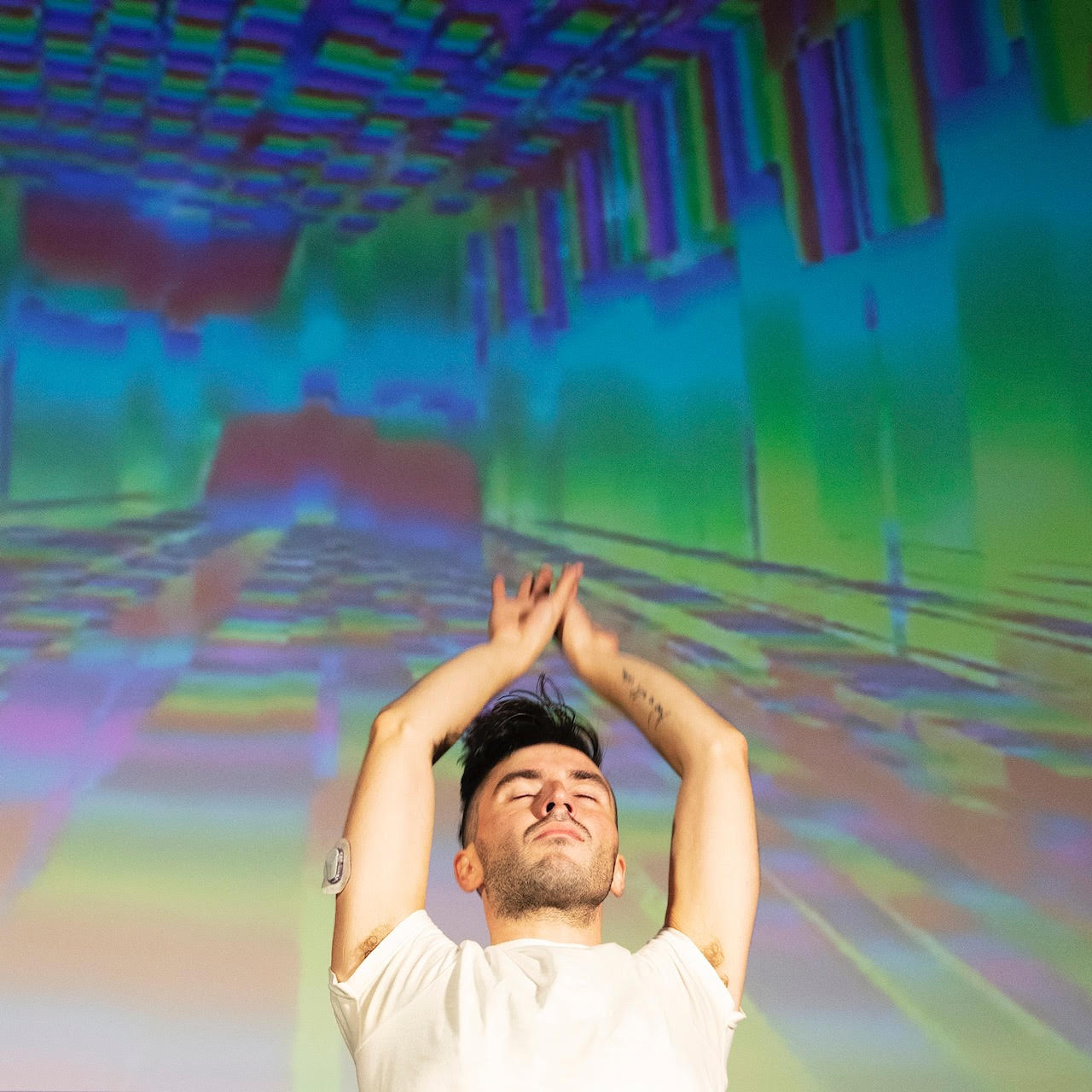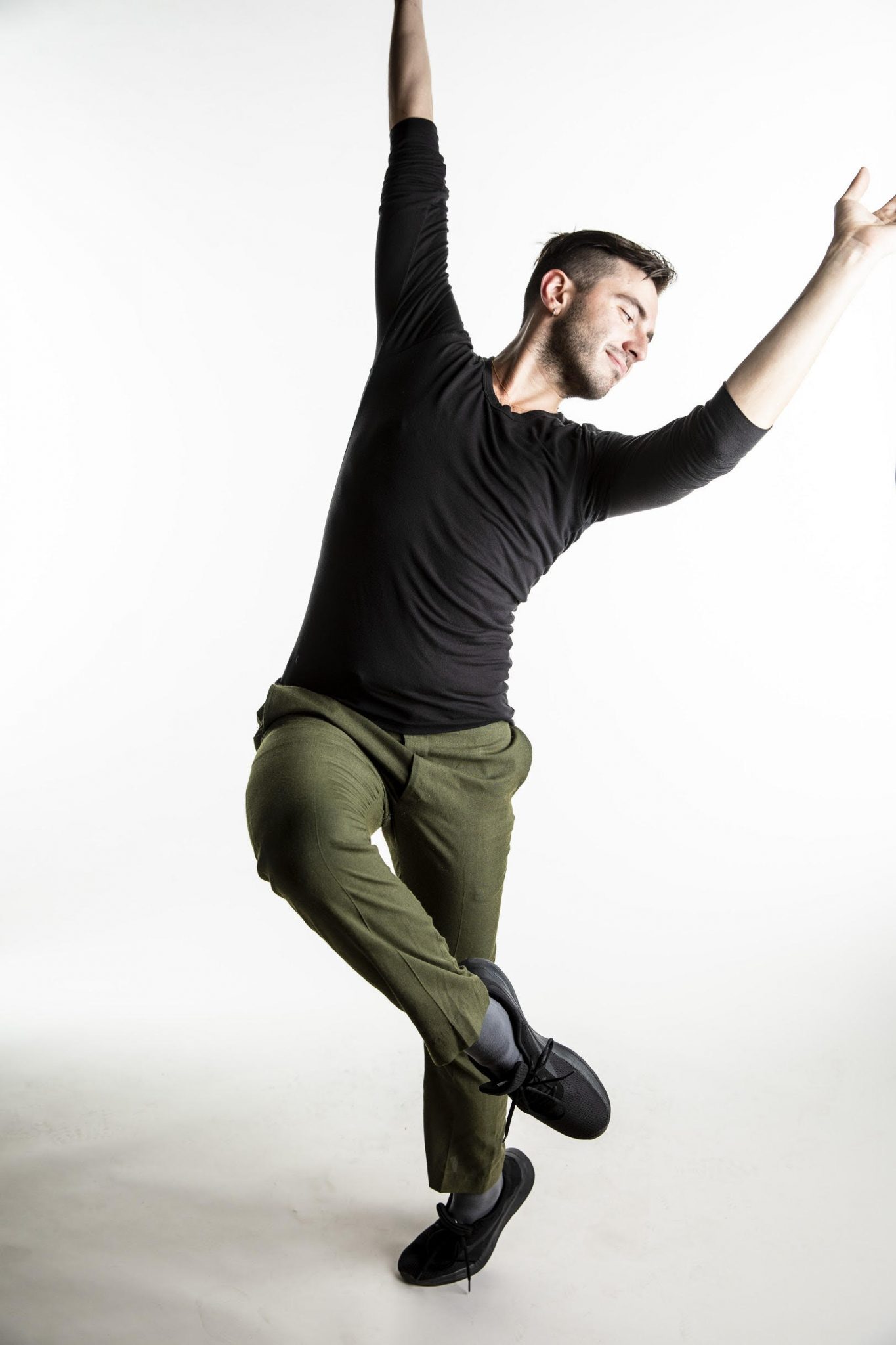José Rivera Jr. is a non-binary, queer Latinx performing artist who’s currently creating their debut visual EP LQQK. In an interview with Latino Rebels, we got to discuss about their upbringing, music influences, healing process, the importance of a vulnerable and ungendered love, current non-binary, queer and Latinx representation, and why do LGBTQ people have such a strong relationship to the act of dancing?


via Lauren Renner at Kickstarter
Luis Luna: In your Kickstarter campaign video, you describe LQQK as one that highlights the “queer beauty of metamorphosis, vulnerability, and ungendered love.” Can you unpack that a bit and say why each is a vital component to this EP?
José Rivera Jr.: This EP is about going deep inside yourself to unlearn the constructs of what you’ve been taught about love How you communicate with yourself, with your partner, your best friend, mom. Whoever. Every song is a love song.
Metamorphosis in the LQQK context means exploding beautifully and colorfully from the inside out. Not being afraid to get deeply personal and showing your heart—that’s vulnerability. Ungendered love is all love. We all experience love, and have somehow been taught that love has a gender to which you must fit your puzzle piece to. In reality, love is and has always been ungendered. We (queer folks) are reclaiming that and sharing that beauty with the world.
LL: What are your major music influences?
JRJr: I love early ’80s synth pop, glam and hair bands. Freddie Mercury, Gaga, Meredith Monk, Eartha Kitt, SOPHIE. There’s also Phillip Glass, Steve Reich, Missy Mazzoli, Tristan Perich, Nico Muhly. New music. Pop music. Electro pop and glitch. Oh DUH—Kim Petras!


via Lauren Renner at Kickstarter
LL: How has your upbringing molded you, both as a queer person and as a queer artist?
JRJr: I’m Puerto Rican and Italian. I come from two very passionate, loving families who taught me to love parts of myself that can assimilate, and to hide parts of myself that don’t fit in as a means to assimilate. I am unlearning these things because the things that make me queer and non-binary are what identify José, as the most me there is. I’m full of glitter, smiles, love, and energy. I was taught to hide this so well, and now I’m using my music to embrace these deep bellows of my heart to make you go a bit deeper into your body, too.
LL: Every artist goes through pain and, in many ways, finds conduits of healing through their work. Has that been your experience? If not, how do you approach the process of healing? How important is it to you?
JRJr: Healing has come through the doing of the process. The words themselves are not healing, but resolutions or antidotes. When I improvise, either physically to make dance, or transpose this physicality into my voice to make music, I am healed. It is important to me that my music and art is not my therapy—the work is not for me, it is for everyone who chooses to listen, love, and share it.
LL: Your visual EP will focus on music, but also dance, which isn’t at all surprising! As a LGBTQ person, I must admit my affinity to the act of dancing. A dance sequence or scene tends to be my favorite in a film. Personally, I find dancing to be almost therapeutic. Why do you think many queer people have such a strong relationship to dance?
JRJr: Because all queer bodies are sexy bodies, babe! Moving is so intrinsic to human nature, and so much about our culture is about stifling movement. Sit in a chair. Work out this way. Dress this way and wear shirts that only allow your arms to love halfway up. It’s so not human! Dance is deeply human.


via Lauren Renner at Kickstarter
LL: You make a good point by saying you make music for all folks non-binary, queer, and Latinx alike. Mainstream media doesn’t give this group of people the platform to showcase their talent, even though there are many out there who are in need of artists to represent them. What do you think is missing in the non-binary, queer Latinx representation?
JRJr: Me! But, [seriously] I’m here now. I wanna see darker skinned people claim their identity as non-binary in leading roles on and off camera. Rishi Rajani (President of Lena Waithe’s Hillman Grad Network) is one of the few new leaders actively working towards equitable representation in all mainstream media like what I describe. Stories of color, queer stories are everything and shine as deeply —for straight and queer folks alike— because love is ungendered, and works far beyond skin, gender, or sexuality. We all love and it’s time we all respect each other and support that.
You can learn more about José by watching their Kickstarter campaign video.
***
Luis Luna is Latino Rebels’ arts writer and associate producer of Latino Rebels Radio. He tweets from @luarmanyc.


